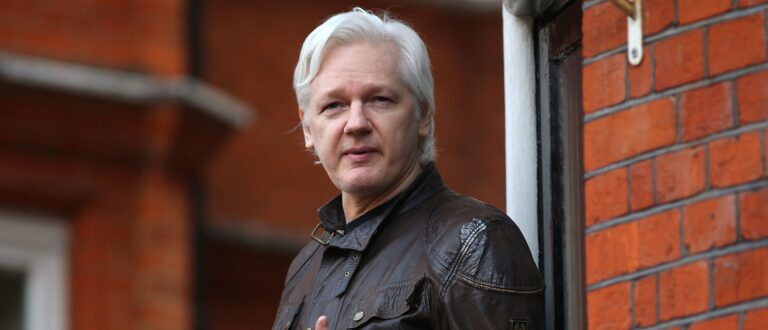ON JULY 3RD Jeremy Corbyn told Unite, Britain’s biggest trade union, that “Labour is back as the political voice of the working class”. This would be nice if it were true: the Labour Party was after all founded to represent the working class, and the working class has been severely battered, in recent years, by the casualisation of labour and the stagnation of much of the economy. Alas, it’s nonsense. The Labour Party’s links with the working class have been weakening for the past 30 years—and continue to weaken under Mr Corbyn.
The divorce between the Labour Party and the workers has played out in two phases. The first was under Tony Blair. Mr Blair saw the party’s future as being the party of the professional middle class: that is university-educated people who worked with their brains rather than their hands and embraced the double liberalism of free markets and progressive morals. The party’s apparatus was taken over by identikit professional politicians who had been to the same universities (often Harvard as well as Oxford) and worked for the same think-tanks. A striking number of these freeze-dried specimens were women. Just as the rapid expansion of the universities benefited middle-class women far more than working-class men, so the Labour Party’s women-only short-lists speeded up the transformation of the Labour Party from a working-class into a middle-class party.
The party’s bet on the rise of the middle class allowed it to win three elections in a row. But there were plenty of warning signs. The traditional working class abandoned politics for private pursuits. Party membership plateaued. Turn-out went down sharply. In the 1970s and 1980s close to 80% of the population would turn out to vote. From 2000 to the Brexit referendum in 2016 turn-out averaged 63%. New Labour was a party about which they knew little and cared less.
The second phase was with Jeremy Corbyn. Mr Corbyn no doubt imagines himself to be a champion of the working class. But this is a working class of his imagination rather than of the real world. He was brought up in a manor house in Shropshire and has spent his life working as an MP in a constituency (Islington North) that has never been touched by either industrialisation or de-industrialisation. Mr Corbyn is in fact presiding over the takeover of the party by three groups: ethnic minorities, particularly Muslims; public-sector professionals; and frustrated millennials, most of them the university-educated children of the salaried middle class, who can’t get their feet on the property ladder. The latest membership figures show that 77% of party members are middle-class (ie, they hail from ABC1 social groups). The proportion of Labour MPs who have had experience of manual work has declined from 16% in 1979 to 3% today. The party has almost no younger MPs without a university education despite the fact that 70% of school-leavers don’t go on to university (Angela Rayner is a notable exception). The party’s most powerful pressure group, Momentum, was founded by a Cambridge-University graduate with an MBA from the London Business School, and is stuffed full of educated millennials. The average trade-union member is now a woman in her 50s who works in the public sector. An intriguing new book by Ben Cobley, a former Labour activist, “The Tribe: The Liberal-Left and the System of Diversity”, points out that the 2017 Labour Party rule book, a 91-page document, contains 26 mentions of “gender”, 41 of “BAME” (black, Asian and minority ethnic), 43 of “ethnic”, 11 of “race”, two of “black” and “Asian” respectively, but only two of “class”.
This takeover of the Labour Party by other groups has coincided with hard times of the traditional British working-class—particularly the white-working class. The proportion of working-age men without qualifications who were not active in the labour force increased from 4% in the mid-1990s to 30% today. Poor white British children do worse in school than any other ethnic group. In 2016, 75% of the suicides reported in the United Kingdom were men. The suicide risk for low-skilled men, particularly those working in the construction industry, is three times higher than the male average. But this has not stopped many Labour-Party-affiliated activists from demonising all white men, however humble their background, as vectors of oppression. In significant sections of the Labour Party the term “white male” is used as an accusation rather than a description.
Many working-class people in the north continue to vote Labour out of a sense of traditional loyalty: the Conservative Party’s attempt to win places like Bishop Auckland in the 2016 election singularly failed. But they are increasingly voting for a party that is no longer “theirs”, either organisationally or physically. They are outsiders lending support, rather than stake-holders exercising ownership. As Mr Cobley puts it, the Labour Party is now a party of middle-class, white-skinned members, divided fairly equally between men and women, who rely, for their most reliable votes, on non-white voters, particularly Muslims.
The Labour Party nevertheless may be acting rationally in acting as it is: Mr Corbyn is a harbinger of things to come rather than a relic of the 1960s. Britain’s ethnic-minority population is expanding and becoming more politically engaged. IPSOS Mori estimates that, in the June 2017 general election, 73% of ethnic-minority voters voted Labour compared with 39% of ethnically white voters. Thirteen of the party’s 20 best performances were in heavily Muslim areas. Labour’s best chance of holding onto the Midlands lies in mobilising the Muslim vote, rather than in appealing to Jaguar LandRover workers. The public-sector middle class is huge despite decades of wolf-crying about the destruction of the middle class. And disappointed millennials are potentially the game-changers in British politics. Economic growth is slow. The universities have dangerously over-expanded (while also perfecting the art of teaching their students that the West is based on exploitation, patriarchy and other injustices). Professional service firms are handing over more of their work to smart machines or to cheaper providers in the emerging world. Whatever the problems with British productivity in general the country is doing a brilliant job of mass-producing an alienated “intelligentsia” that will provide a Corbyn-style Labour Party with the votes that it needs to win the next election.
Tony Blair’s decision to bet the future of the Labour Party on upward mobility may have been a wise move in the world of triumphant neo-liberalism. But in the wake of the financial crisis and the growth of wealth-destroying populism Mr Corbyn’s decision to bet the party on downward mobility may be just the right thing.
#Labour #longer #party #traditional #working #class






















+ There are no comments
Add yours